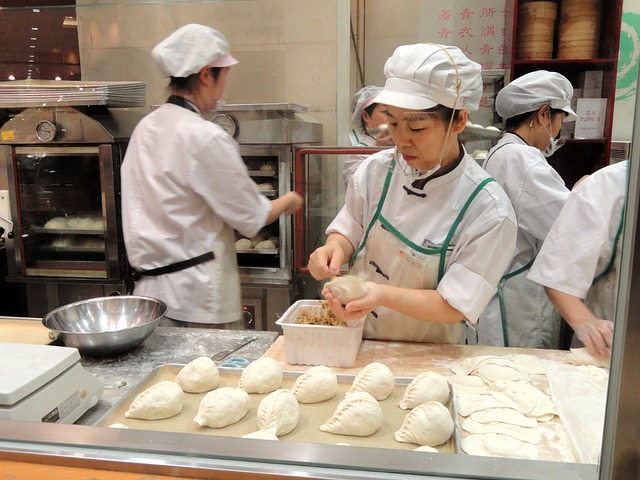Why don't Koreans want to get married? Weddings in South Korea.
Before beginning my exposition, I will tell you that until the date on which this article is published. Same-sex marriages are not legal or officially recognized by government institutions. A subject which could be the subject of future analysis, although observing the culture of this country, I believe that gay marriages will never be legalized. The law does not exist nor is it aimed at protecting and legalizing personal preferences.
Why don't young people in South Korea want to get married? This will be the question to which we will be answering today.
South Korea is a country with a marked culture, which influences and is a fundamental part of the life of each of its inhabitants. In this country, men and women over the age of 18 can marry, although exclusively with the consent of their parents, otherwise it would be illegal. After the age of 20, if a person decides to get married of their own free will, they can carry out this process in the conventional way that we all know.
Unlike Western countries, in South Korea, the years of each person begin counting from the day the fetus is formed in the mother's womb, so Korean children are already 9 or 7 months old at birth. In the case of foreigners visiting or residing in the nation, usually only one more year is added to their regular age. The main problem with this law lies in the social pressure that it exerts on the lives of citizens where age is the initial topic of conversation in any situation of daily life, making the person in question feel ashamed of himself and they are considerably afraid to offer this data in a natural way, and they are also obliged to offer said information in any type of social process carried out. Luckily, said law will be abolished as of this year 2023 for the happiness of all of us who live and work here.
Marriage.
Marriage in South Korea is a way, especially among elite families, to develop and maintain a certain social status. Legal process which is greatly influenced by culture as well. The conduct of Koreans who refuse to enter into marriage with another person under such circumstances is often prosecuted. Many of them are even rejected by their own family simply for having decided to break the mold and live their lives next to the person they really love. Still, marriages between Koreans and foreigners are becoming more common in the country.
“Aid” from the South Korean Government.
Due to existing fears regarding the economic situation of the average citizen of the country. The South Korean Government has created a program of "help for married people" which consists of granting family housing at practically half the price for those who intend to form a family. The main problem with this program is that it is a list to which you subscribe and you have to wait more than 5 years until your case is accepted. Most of these homes are also located quite far from the city.On the other hand, those couples who have conceived children receive financial incentives from the Government. Which pays monthly between 150 or 200 dollars depending on the number of children that a family has, although logically this "help" is not for an indefinite period. This payment is made until ages under 8 years and logically this money is insufficient to cover the expenses that a child in this country entails.
Weddings in South Korea.
Coming from a naturally joyful culture where people truly value the privilege of being alive. I don't quite understand why celebrating an event as important as marriage in this country turns out to be such a boring and false activity. An event where huge sums of money are used, often exceeding 30 thousand dollars (Money that comes out of the hosts' pockets) simply to show an image to the rest of society. An event that also only takes aesthetics into account, where absolutely everything must be perfect, from the decoration of the place to the photos that the couple take.
Another curious fact regarding Korean weddings is that the guests must pay to enter the event, something that surprised me when I heard about it for the first time. In principle, the guests should not pay, but the Koreans consider that it would be disrespectful not to do so and they have created a system that consists of establishing a certain amount of administration (the prices may vary depending on the money that each one "voluntarily" want to pay although prices are usually around 50 to 1000 dollars.) In this way the host recovers part of the money invested to prepare such an event.
Personally, I have had the opportunity to be invited to several of these events and the truth is that everything is due to a fictitious event. It seems that the people who attend there do so obligatory, out of pure bureaucracy and not in order to enjoy a unique and unforgettable moment such as a wedding.
How affected the economy of the country the reduction of marriage in society?
Until a few years ago, South Korea had one of the longest working hours in the world, although due to the interests of the Government a little over 4 years ago, it was considerably reduced to 52 hours of work per week out of 68 existing. The main reason why this decision was made was due to the little time Korean citizens had to develop their lives and with it their personal relationships. The Government understood that the low birth rate in the country is due to the short interaction time that workers have, which seriously affects the economy and with it the future of the nation. The decision to reduce the working hours is not due to a kind action, it is due merely to an economic issue.
Due to the great development of the country, most young Koreans have a job, although not very well paid. Economic insecurity is then one of the main limitations that thousands of citizens present when they get married. All this without mentioning the issue of housing, a matter that I will talk about soon in one of the articles.
Why are Korean women choosing to be independent? Marriage package.
This term refers to the responsibility that the union of 2 people represents before the law. Motherhood is a process that acts in a similar way in any country, although here in South Korea we must add to this whole process the existing cultural traditions which can turn motherhood into a true hell. This is why many Korean women with or without a high academic preparation today are directly renouncing marriage or at least with Koreans. They do it because they do not want to continue living a life governed by dogmas and absurd traditions which do not respond to their personal interests.
Women by nature represent the most important part of marriage and society in general. She is the key piece in the generational change of any population on the planet and with it the preservation of the human being as a species, although we all know the importance of man as a complement in all this complex natural process.











Comments
Post a Comment